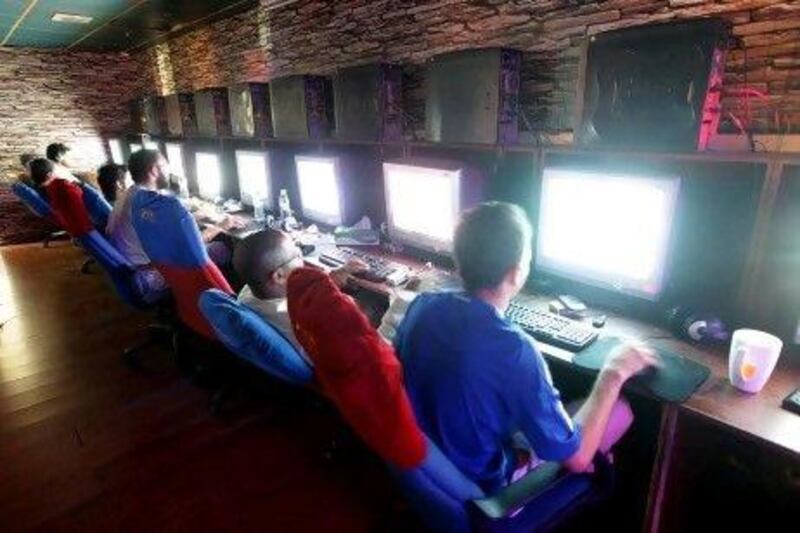The Middle East video game industry is being held back by rampant piracy and a lack of game developers.
Biggest hits: Video game best-sellers
$830.9m Guitar Hero III: Legends of Rock. Publisher: Activision
$787.4m Call of Duty: Black Ops. Publisher: Activision-Blizzard
$736.6m Wii Fit. Publisher: Nintendo
$713.6m Call of Duty: Modern Warfare 2. Publisher: Activision-Blizzard
$670.7m Rock Band. Publisher: Viacom/MTV Games
Source: cnbc.com
That is the view of a founding member of the Games 11 expo, which is showcasing yet-to-be-released titles at Dubai Mall this weekend.
"One of the things that plagues us is piracy. Although gaming itself is a big pastime here, the legitimate business is relatively small, purely because of piracy," said Nitin Mathew, the founder and chief executive at Cygnus Communications in Dubai. He was also one of the founders in 2008 of the annual games expo events held in Dubai.
The sale of counterfeit goods, such as fake handbags and video games, is common in the Emirates and elsewhere in the Middle East despite authorities' fight against the practice.
No figures are available for how piracy harms the region's video market, which is estimated to be worth between US$350 million (Dh1.28 billion) and $1bn, said Mr Mathew.
But the US's gaming market, at $10bn, dwarfs the Middle East's, even though the US and Middle East each has a population of about 300 million. Local video game development is another issue keeping the industry from reaching its full potential. That is primarily due to the high cost of doing business in the region, said Mr Mathew.
"Compared to Eastern Europe or China or India, it's relatively expensive to set up and run businesses here. So your development costs go up and that keeps studios and publishers away from the region," he said.
A lack of skills in the local video game development industry is a further stumbling block.
Yet countries such as the UAE are improving in this aspect of the industry. Among other initiatives, the SAE Institute in Dubai offers training for the field. "Our games development course is due to be rolled out in 2012, but we currently give an animations course which is focused somewhat on animation for games for interactive media," said Keiran Bartlett, a games lecturer at SAE.
Mr Bartlett said the institute also offered courses in games development for mobile devices such as the iPhone. And it is in the field of mobile gaming development that the UAE is already developing game titles.
Karkadann Games, a games publisher in Abu Dhabi, is set to release the Filipino boxing star Manny Pacquiao's official game for the iPhone, iPad, Google's Android, and Facebook. Called Pound for Pound, it will star Pacquiao as the hero in a mixed martial arts action adventure game.
David Ortiz, Karkadann's chief executive, said the UAE could further increase game development in the region if the Government offered incentives or funding to companies and startups to operate in the country.
"Canada did this for several years, and their development presence increased significantly in games and films," said Mr Ortiz.
In the meantime, Karkadann Games is focusing on continuing to make its mark on the mobile gaming market.
"Based on the already high mobile phone penetration rate, I would have to lean towards mobile," said Mr Ortiz. "The UAE and the Middle East have one of the highest mobile penetration rates in the world and the price of the content on these devices makes it possible for people of all incomes to purchase content."
The rise of casual gaming on phones, tablets and social networks is where the future growth in gaming industry will be, predicts the research company IDC.
It recently said that mobile gaming's wider adoption would even hit console game sales and that the number of gaming consoles sold globally would decline by about 1 per cent by 2015.





